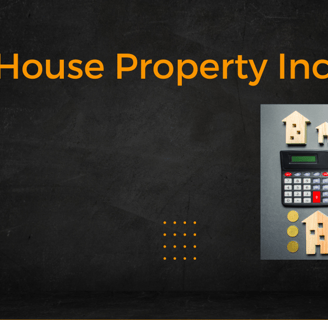We provide Tax Filing Services for your Income From House Property!
If you earn income from your house property, you might need to file taxes. But don't let that stress you out! Our AI Auditors Firm provides tax filing services that are reliable and efficient. Let us take care of your tax obligations so you can focus on your business and personal goals.
ITR filling for house property as per income tax Act 1961
Filing Income Tax Returns (ITR) for house property in India, under the Income Tax Act, 1961, involves specific considerations. Here are the key points related to ITR filing for house property:
1. Annual Value Calculation:
- Determine the annual value of the house property. It is the potential rent that the property could fetch in the open market.
2. Self-Occupied Property:
- If the property is self-occupied, the annual value is considered as nil. There are certain conditions and restrictions.
3. Let-Out Property:
- If the property is let-out, the actual rent received or the expected rent, whichever is higher, is considered for the annual value.
4. Standard Deduction:
- A standard deduction of 30% is allowed on the annual value to cover repairs, maintenance, and collection expenses.
5. Interest on Home Loan:
- Interest paid on a home loan is eligible for deduction under Section 24(b). There are specific limits and conditions for this deduction.
6. Principal Repayment:
- Repayment of the principal amount of the home loan is eligible for deduction under Section 80C.
7. Municipal Taxes:
- Deduction for municipal taxes paid during the financial year is allowed.
8. Loss from House Property:
- If there is a loss after accounting for deductions, it can be set off against other income.
9. Jointly Owned Property:
- If the property is jointly owned, each co-owner can claim deductions based on their ownership share.
10. Deemed Ownership:
- In certain cases, even if you don't own the property, it may be treated as 'deemed to be let out,' and income is calculated accordingly.
11. Filing ITR Form:
- Individuals can file their income tax returns using the relevant ITR form. For house property, ITR-1, ITR-2, or ITR-3 may be applicable, depending on the individual's income sources and the complexity of the return.
Due Date for ITR filling house property income:
As of my last knowledge update in January 2022, the due date for filing Income Tax Returns (ITR) in India, including those involving house property income, is typically July 31st of the assessment year for individuals who are not required to undergo a tax audit.
However, the due date may be extended in certain cases or for specific categories of taxpayers. It's crucial to check for any official announcements or updates from the Income Tax Department or consult with a tax professional for the most accurate and current information regarding due dates.
For individuals or businesses required to undergo a tax audit, the due date is usually extended to September 30th of the assessment year.
Please verify the latest guidelines and deadlines to ensure timely and accurate filing, as tax-related dates are subject to change based on government notifications.
Documents required for ITR filing house property income
When filing your Income Tax Return (ITR) in India and reporting income from house property, you generally need the following documents:
1. Ownership Proof:
- Documents establishing your ownership of the property, such as the sale deed.
2. Rental Agreement:
- If the property is rented out, a copy of the rental agreement is required.
3. PAN Card:
- Permanent Account Number (PAN) details of the property owner(s).
4. Property Details:
- Complete address and other details of the property.
5. Loan Certificate:
- If there is a home loan, a certificate specifying the interest and principal components of the loan.
6. Municipal Tax Receipts:
- Receipts of municipal taxes paid during the financial year.
7. Rent Receipts:
- If the property is rented out, receipts for rent received.
8. Co-ownership Details:
- If the property is co-owned, provide details of co-owners and their respective shares.
9. Bank Statements:
- Statements reflecting transactions related to the property, including loan repayments and rental income deposits.
10. Form 26AS:
- This form reflects details of tax deducted at source (TDS) on rent, if applicable.
11. Details of Pre-Construction Interest:
- If the property is under construction, details of pre-construction interest paid.
12. Home Insurance Premium Receipts:
- If you have insurance for the property, include premium payment receipts.


Contacts
Socials
Subscribe to our newsletter
+91 9743234568
